16 Civil War Part II
Civil War 1863-1865
Jim Ross-Nazzal, PhD and Students
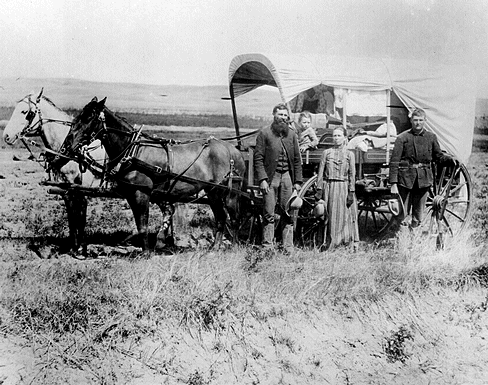
1862 was a non-presidential election year. Although Republicans retained control of the Senate and the House, they lost some seats. Nevertheless, the 37th Congress was one of the most active in US history. First, they enacted all of the Republican platform goals from the 1860 election. Then they set their sights on the future. Congress passed the Morrill Tariff, which helped pay for the War. Then an income tax was revised to include taxing luxury goods. This also helped pay for the War. These, and other measures, helped to keep down inflation.
Congress passed the Homestead Act, which offered 150 acres for anyone moving west of the Mississippi River. If you lived on the land for 5 years, the federal government would give you the title to the land, free and clear.
The Land Grant College bill appropriated land and money to build agricultural colleges to teach those who took advantage of the Homestead Act how to be successful farmers. Colleges today such as Wisconsin, Washington State University, Arizona, and Texas A&M (“A” is for “Agricultural) started as land grant colleges.
Finally, the 37th Congress passed a railroad bill designed to build a transcontinental railroad from Omaha, Nebraska to San Francisco.
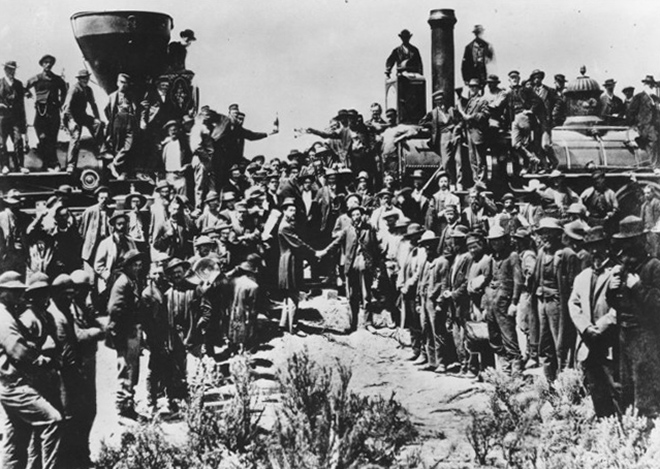
The North experienced an economic boom and the economy plus the new taxes helped in large measure to pay for the war. There was no equivalent in the Confederacy.
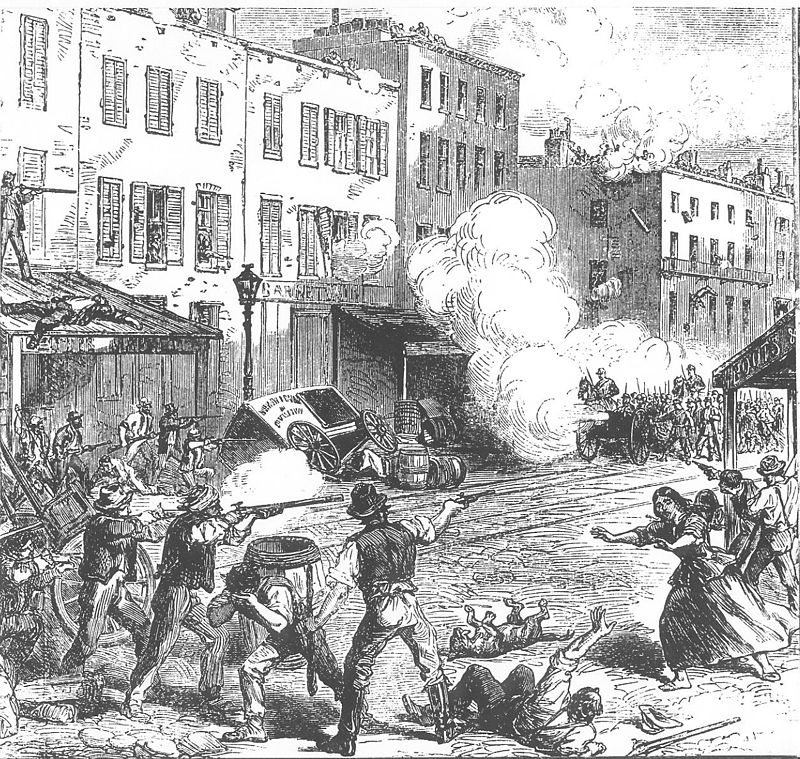
Nevertheless, there was a growing opposition. Many were disillusioned with the war effort and Lincoln’s administration. Much of the opposition was centered in New York were the governor (Horatio Seymour) was an outspoken critic of Lincoln. In New York City, fear of immigrants, especially Irish immigrants, in having to complete for jobs with ex slaves, and Irish immigrants being drafted in numbers higher than their American born peers, led in part to the draft riots shortly after Gettysburg. There was also growing opposition in the border areas, where Lincoln had the army arrest thousands of protesters.
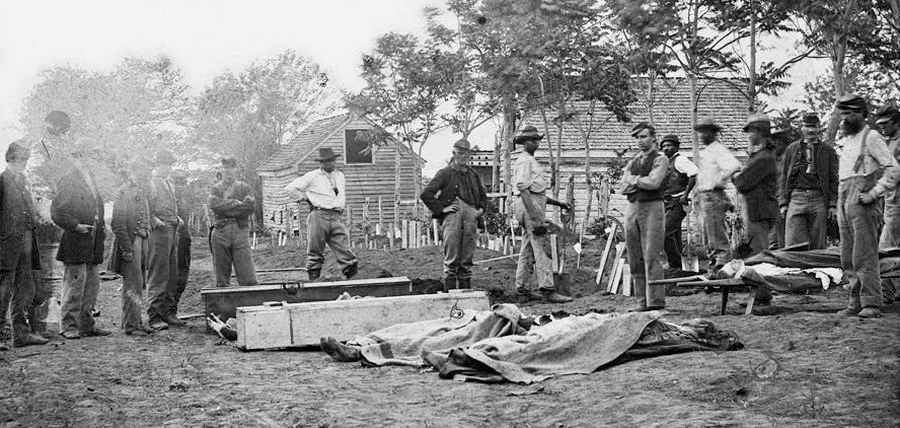
Battle of Fredericksburg, December 13th, 1862. McClellan is replaced by General Ambrose Burnside, whose claim to fame will be his dramatic facial hair on the sides of his head, eventually called sideburns. Burnside ordered his troops to attack Lee’s forces, which were dug in and fortified. Unfortunately, Union troops attacked Lee’s forced without cover so the Confederate troops mowed down the Union forces. Burnside suffered approximately 10,000 casualties to Lee’s 5,000.
Then there was the political significance of Fredericksburg, which produced a crisis in Lincoln’s cabinet. There existed divisions among the Radical Republicans and moderate Republicans. Others feared Lincoln would not follow through on emancipation and were also upset with Lincoln’s choice of inept generals. Much of the frustration was focused on Seward and Chase. Lincoln meets with a delegation of Republican congressmen, who blamed Lincoln for the military losses because they believe Lincoln’s cabinet gave him wrong and at times conflicting advice. The delegation pushed Lincoln to reorganize his cabinet. Lincoln listens then tells the delegation to return the next day. The delegation is particularly focused on getting Seward removed, however Seward was Lincoln’s chief confidant.
On December 19th, Lincoln assembled most of his cabinet (sans Seward and Chase) and told the cabinet what the Congressional delegation told him. Lincoln asked, “Are we divided?” Each cabinet member answered no in front of the delegation. The next day (December 20th) Seward and Chase offered to resign, Lincoln refused both but told them he has something to keep the Radical Republicans at bay.
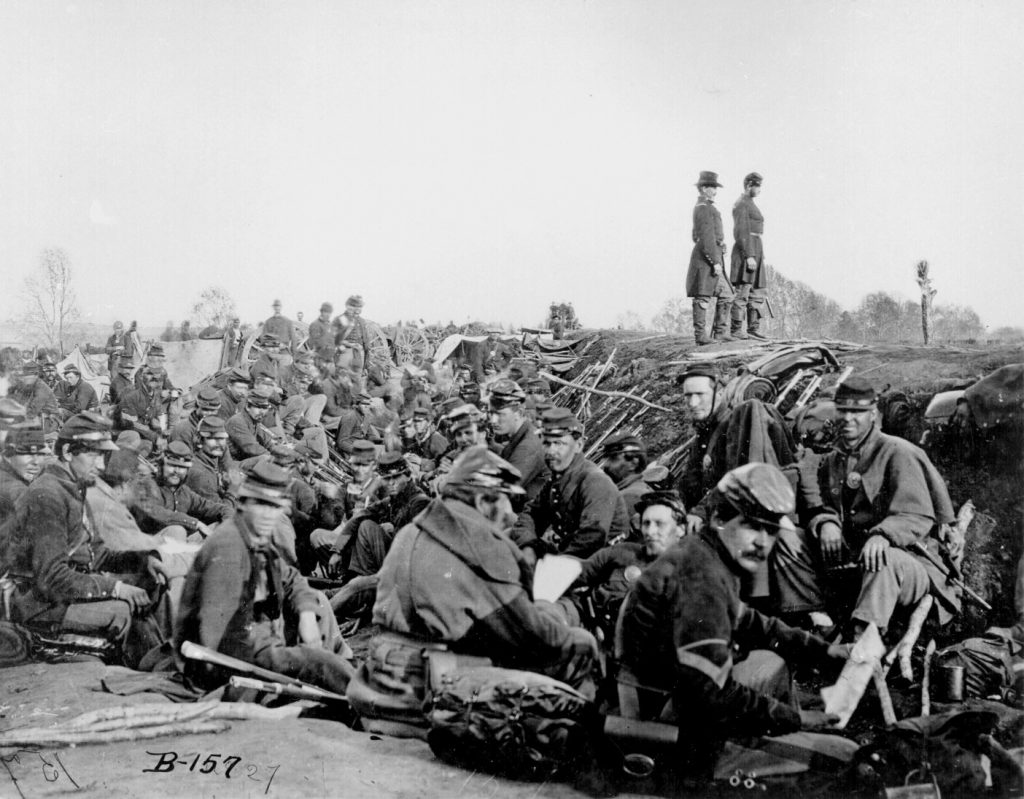
Battle of Chancellorsville, April 21 to May 11, 1863. 30,051 casualties. General Joseph Hooker (who replaced Burnside) is routed by Lee. The defeat caused Lincoln’s cabinet to draft letters of resignation, which Lincoln refused to accept. There was, however, another shake up of Union generals. And, Lincoln announces the first federal draft in July. Democrats voice their opposition and many Democratic leaders in the border states call for an armistice. Some of the most vocal opponents of Lincoln and the Republican’s war efforts are arrested. One in particular, Clement Vallandingham of Ohio was arrested by General Burnside, thrown into prison, and eventually exiled to the Confederacy. He migrates to Canada where he attempts to lead the Democratic opposition to Lincoln.
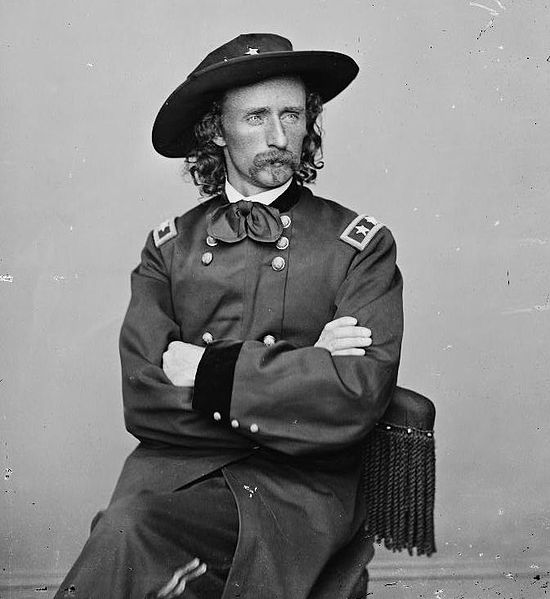
Gettysburg. 51,000 casualties. There was no reason for this battle. Lee was in Pennsylvania looking for General Meade’s army. Meade was trying to find Lee. On July 1st, 1863, Lee’s forces are north of the town of Gettysburg while Meade’s forces happen to be just south of Gettysburg. Lee, believing a rumor that there was a shoe factory in town, sends some men into Gettysburg to investigate. At the same time, Meade sent a detachment into the town to look for food and shelter. The parties met near the town’s graveyard. On the first day of the Battle of Gettysburg, Union forces seized the high ground such as Cemetery Ridge and Little Round Top. Lee’s forces failed to remove the Union troops. On the second day reinforcements poured into the town, leading to major battles. Still, the Union troops held the high ground. On July 3rd, Lee decides to send a division of troops (a little more than 12,000 men), led by the dashing General George Picket, directly towards the Union positions. The assault will force Picket’s men to be without cover as they march towards the Union lines.
Meade ordered his men to wait to see how many Confederate troops would leave the cover of the peach orchard and march directly towards the Union troops without any cover. Eventually Meade ordered his riles and artillery to fire. Union rounds could not help but hit Confederate troops while Union artillery ripped through the Confederate formation. Arms, legs, torsos flew apart and into the air. Union troops began shouting “Fredericksburg, Fredericksburg, Fredericksburg!” Lee searched for Pickett to order his men to withdraw. Gettysburg was a devastating loss for Lee. Lincoln ordered Meade to finish off Lee’s army. Made refused and allowed what was left of Lee’s forces to limp back to Virginia. Lincoln was furious, however massive riots in New York City caused Lincoln to order Meade to put down the revolts. Years later, Picket will be asked about Lee. “That old man had my division slaughtered,” Picket replied. There were more causalities at Gettysburg than there were residents of Gettysburg. The burial detachments spent months trying to bury the bodies and body parts. August, September, October and into November before the battlefield was cleared of the dead.
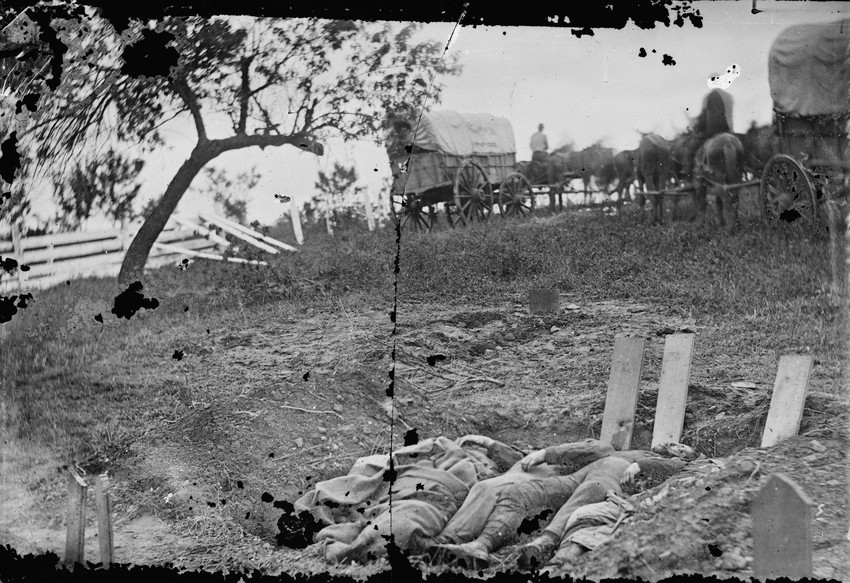
In November of 1863, state officials dedicated Gettysburg as a national cemetery. President Lincoln was invited as an after thought, with the hopes that he would not come to speak. Lincoln followed the most well known minister of hid day, Edward Everett. Everett spoke for over two hours. Then it was Lincoln’s turn. Interestingly enough, one year before Gettysburg, the German Leader Bismarck said not politics but “blood and iron” would be necessary to unify Germany. Lincoln spoke 372 words. In 372 Lincoln paid tribute to those who died, he discussed the enduring success of the American democratic experience by saying the deeds of the living could only do justice to the dead. In 372 words Lincoln transcended the reasons for the War.
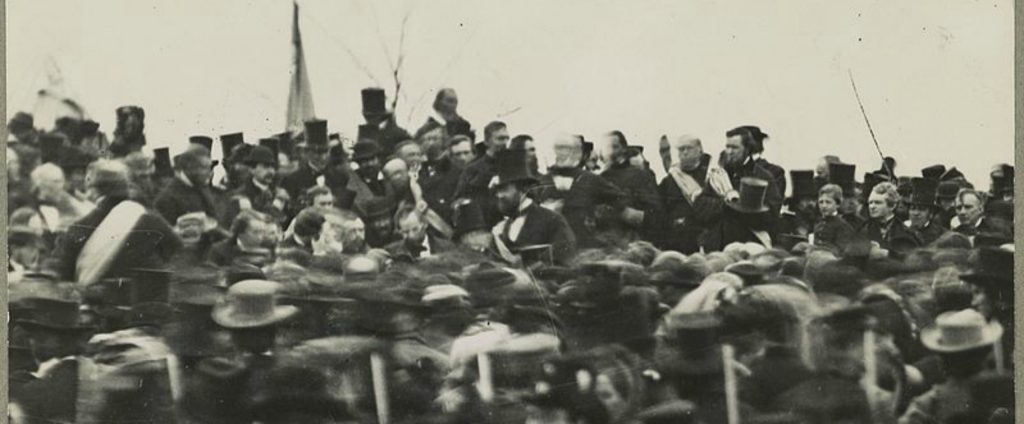
Vicksburg (50,000 casualties with 29,000 Confederate troops surrendered). On July 4th Grant’s forced seized the Mississippi river town of Vicksburg, Mississippi. The significance of that was now then Confederacy was cut in half and the Union controlled the Mississippi River. The people of Vicksburg would not celebrate the Fourth of July for over 70 years.
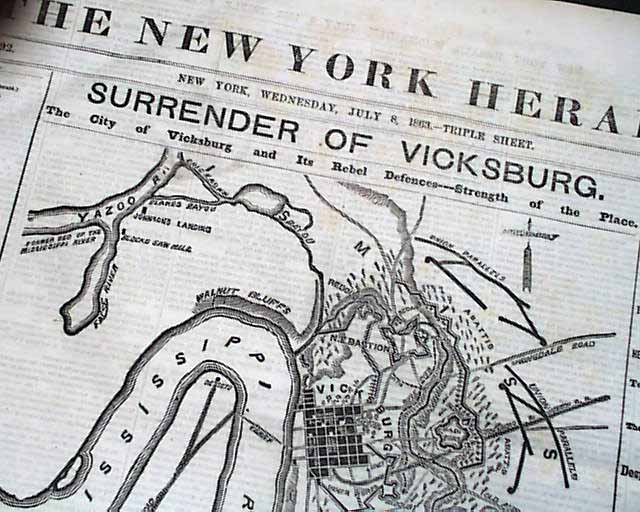
The twin successes at Gettysburg and Vicksburg were major morale boosters for Union troops and signaled the beginning of the end of the Confederacy. Northern newspapers began eulogizing the Confederacy. However, it will take Union troops another 21 months to put the rebellion to an end.
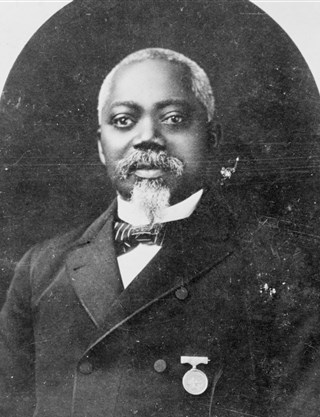
Battery Wagner, July 18th, 1863. The attack against this Confederate seaside installation was led by Colonel Robert Shaw and the all black 54th Massachusetts Infantry. Men of the 54th made it to the outer walls of the fort where they engaged in hand to hand combat. They were eventually repelled by Confederate troops. The 54th suffered massive losses to include the death of Col. Shaw, a stanch abolitionist. William Carney, a survivor of the battle, was the first black person awarded the Medal of Honor. The award will not be given to him until 1900. Carney died eight years later.
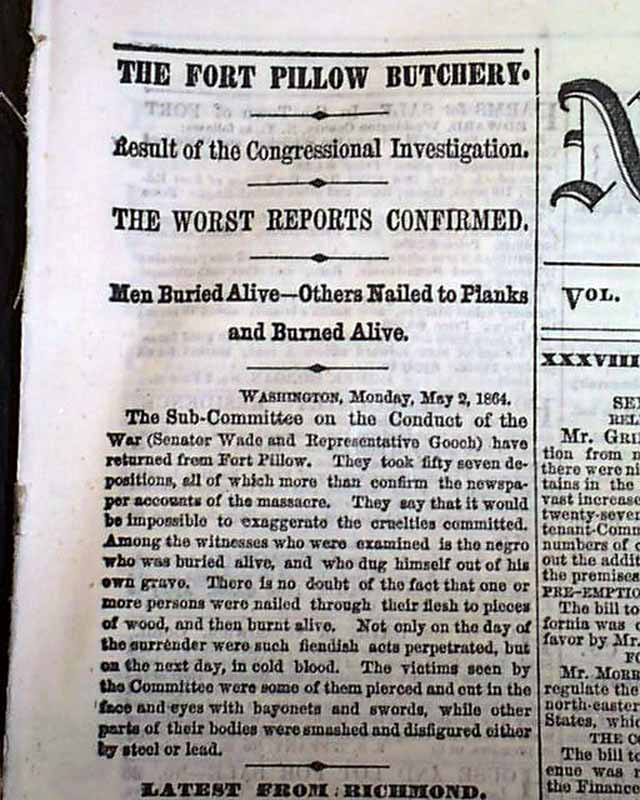
Fort Pillow Massacre, April 12th, 1864. A battle took place on the Mississippi River near Henning, Tennessee. Union troops were occupying an old Confederate installation named Fort Pillow. Confederate troops were led by General Nathan Bedford Forrest, who routed the Union troops, many of whom were freemen and ex slaves. While surrendering, Forrest ordered his troops to kill the black soldiers. There is tremendous disagreement among historians as to the number of Union troops killed during the battle, killed after surrendering, and those taken as prisoners of war. There was even disagreement among Lincoln’s cabinet members as to what the government should do in wake of the reported massacre. Forrest will eventually establish a secret social club for disaffected white men called the Ku Klux Kan. He was the first Grand Wizard, but eventually quit when the Klan became too violent, even for him.
Battles of the Wilderness, May 5-19, 1864. 54,000 casualties, pitted Grant versus Lee. By that time, Lincoln had elevated Grant to lead the entire Union army. A fire swept part of the battlefield. Before Grant could move his troops out of the path of the fire, many died. This event hurt Union morale and Grant failed to take Lee or Richmond, yet it was a tactical success for the Union. The massive number of casualties that Grant was willing to take, however, overshadowed the eventual Union success.
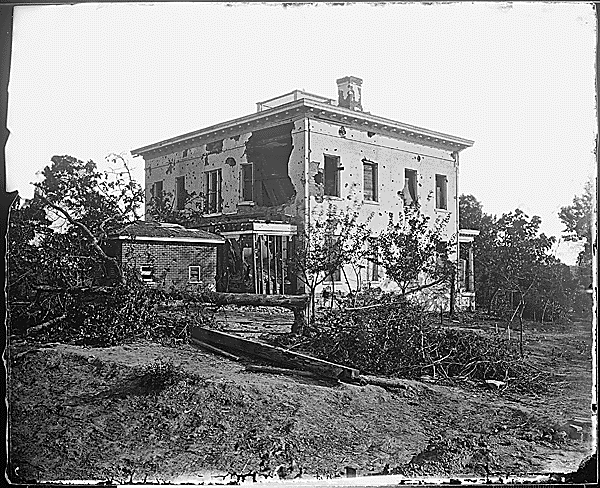
Fall of Atlanta and Sherman’s March to the Sea (Summer and Fall 1864). William Tecumseh Sherman was born in Ohio in 1820. He graduated sixth in his class from West Point in 1840. He resigned from the Army in 1853 and pursued numerous career choices such as finance and law. He rejoined the army in 1861 and became the most well-known commander next to Grant. After the War, he became a military governor of the Missouri district and supported a policy of placing Indians on reservations. Sherman retired from the Army in 1884. The Republican party tried to get Sherman to run for president. He refused. Some in the party suggested that they just nominate him thus force him to run. Sherman replied, “If nominated I will not run; if elected I will not serve.”
Sherman captured Savannah in December. The significance of Sherman’s success was that the Republicans abandoned their plan to nominate the Radical Republican, John C. Fremont, and instead gave Lincoln the chance to secure a second term. The candidate from the Democratic party was Lincoln’s old military nemesis, General George McClellan. McClellan ran on the idea of allowing the slave states to keep their slaves while prohibiting the expansion of slavery out West (which was the position of the Republican party in the 1860 presidential election). Union success at destroying the Confederacy’s main rail and commercial hub plus the devastation between Atlanta and Savannah, resulted in Lincoln easily winning the 1864 election. Lincoln received approximately 74% of the soldiers’ vote, thus suggesting that Union forces supported Lincoln’s handing of the war.
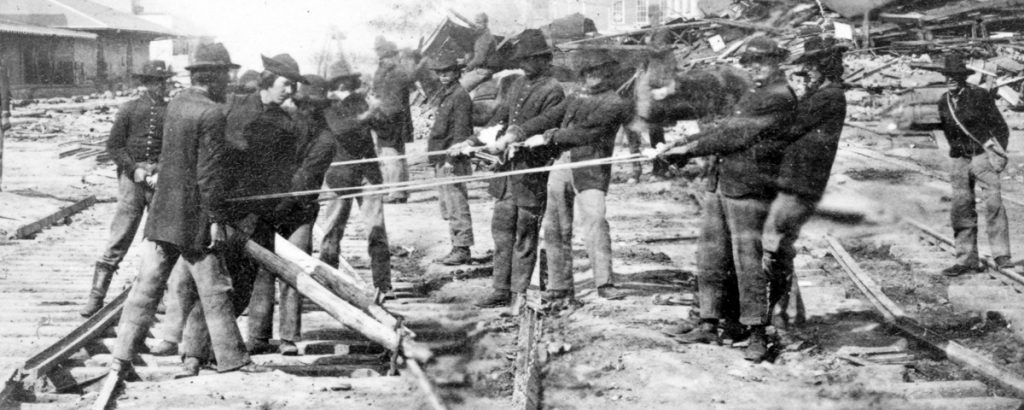
As the Confederate troops pulled out of Atlanta, they fired off explosives that could be heard (and felt) for miles. Very little of Atlanta remained untouched. The slash and burn tactics will be used by Sherman, with about 60,000 troops, as he marched to Savannah. The idea was to inflict so much damage to civilian property and farms than they will compel Jeff Davis to end the war. Sherman will order all civilians to leave Atlanta. Soon after that Sherman will conclude that too many troops and resources were being used to secure Atlanta. Thus, he ordered Union troops to destroy as much of the city as possible using explosives. As Sherman’s troops marched out of Atlanta, Sherman noted that Atlanta was “moldering and in ruins, the black smoke rising high in air, and hanging like a pall over the ruined city.”
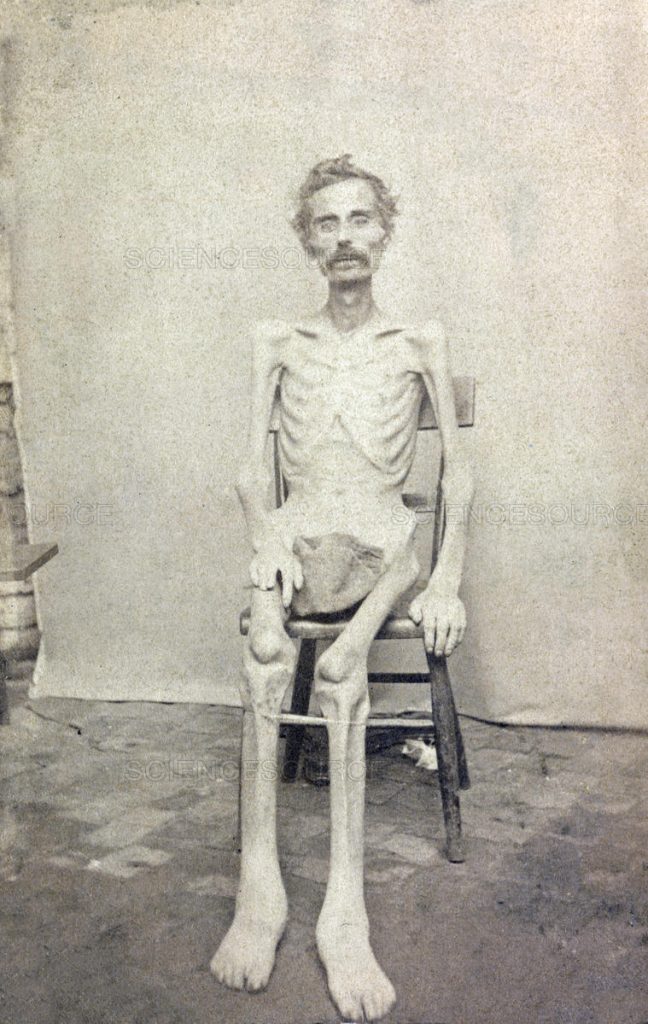
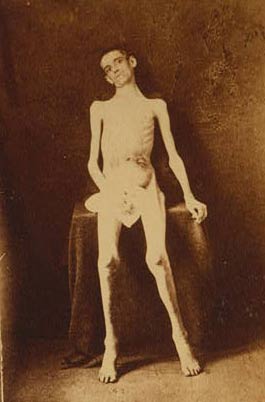
Sherman’s army also liberated the Union survivors at a Confederate POW camps called Andersonville Prison. Andersonville was an open-air stockade designed to hold 10,000 troops but held over 30,000 troops upon liberation. Men died from disease and starvation to the tune of 100 per day. Around 30% of those captured died. The one stream that ran through the camp was both their toilet as well as their drinking supply. Congress held an inquiry of Andersonville and survivors gave testimony. Eugene Forbes said he survived by eating bugs, especially lice which he called “fat and in good condition.” John Ransom noted that when men could no longer take the abuse they would get the attention of the guards, walk too close to the wall, and then be shot and killed. Prisoners called this “being paroled.” Sadistic guards would routinely get the men to fight each other over pieces of rancid meat. The commander of Andersonville was a German immigrant named Henry Wirtz. Wirtz was the only Confederate put to death by the US government.
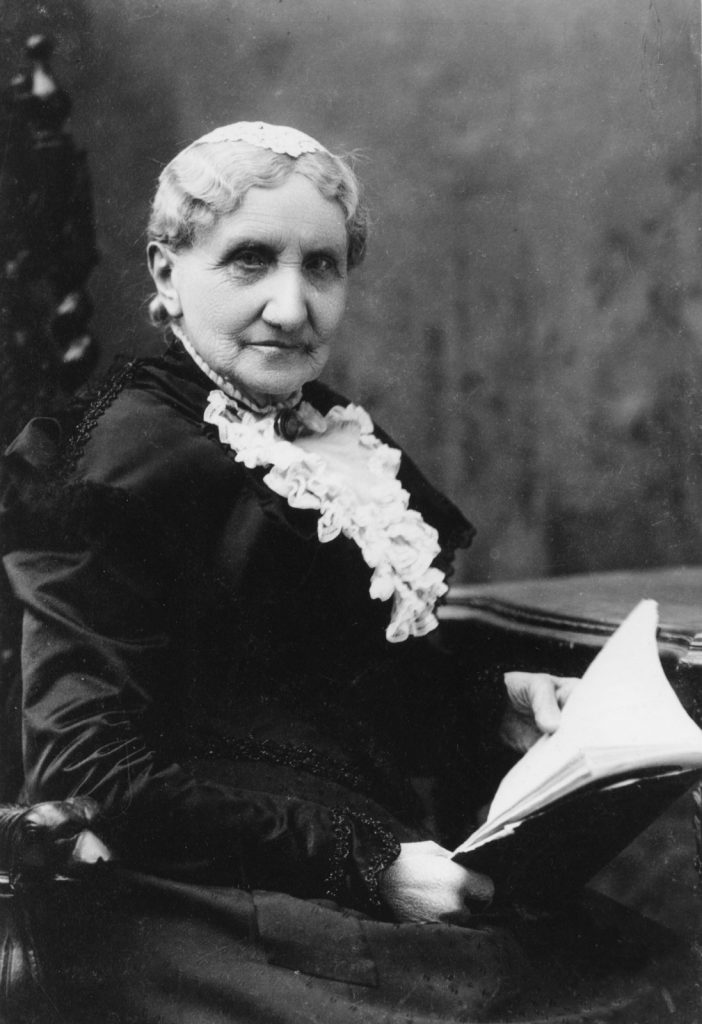
One reason for high morale in the North was the US Sanitary Commission, which provided relief to check diseases. Led by the reformer Dorothea Dix, the Sanitary Commission distributed care packages from home, made bandages and other necessities to treat the wounded. Mary Livermore, in Chicago, organized food relief for the troops. Clara Barton lobbied Congress for better car for the troops and served on hospital ships. After the war Clara Barton will go on to establish the American Red Cross. Dix ran the Sanitary Commission for four years and never drew a salary. There was no equivalent in the South.
The beginning of the Sanitary Commission is rooted in a meeting at the New York Infirmary for women, with more than 50 women, addressed by Henry Bellows, a Unitarian minister. That meeting led to another at Cooper Institute, and the beginnings of what was first called the Woman’s Central Association of Relief.
The Western Sanitary Commission, founded in St. Louis, was also active, though it was not related to the national organization.
Many women volunteered for work with the Sanitary Commission. Some provided direct service at the field hospitals and camps, organizing medical services, acting as nurses, and performing other tasks. Others raised money and managed the organization.
The Sanitary Commission also provided food, lodging, and care for soldiers returning from service. After the end of fighting, the Sanitary Commission worked with veterans in obtaining promised pay, benefits, and pensions.
After the Civil War, many of the women volunteers found work in jobs often previously closed to women, on the basis of their Sanitary Commission experience. Some, expecting more opportunities for women and not finding them, became activists for women’s rights. Many returned to their families and to traditional female roles as wives and mothers.
During its existence, the Sanitary Commission raised about $5 million in money and $15 million in donated supplies.
Some well-known women associated with the Sanitary Commission:
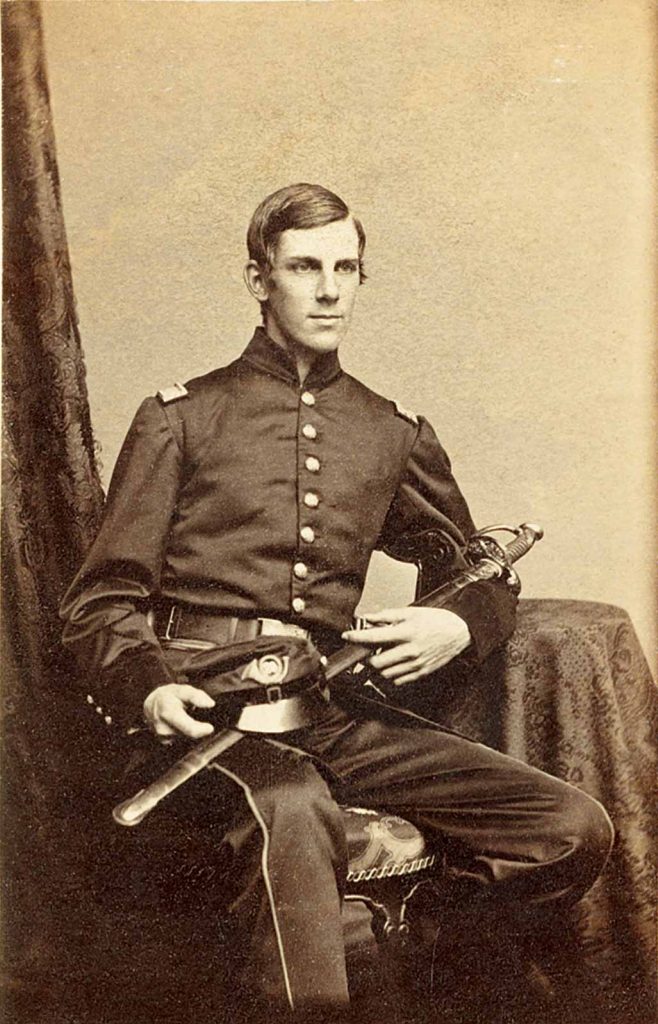
Oliver Wendell Holmes, Jr. graduated from Harvard Law School in 1861 and enlisted in the 20th Massachusetts infantry. He served three years in the Army of the Potomac, wounded three times at Ball’s Bluff, Antietam, and Fredericksburg. He practiced law after the War and rose to the rank of Chief Justice of the US Supreme Court. He wrote decisions on more cases than any judge, except for John Marshall. He presided over cases that still affect the US today such as on the First Amendment and taxes. “Taxes,” he said, “are the price we pay for a civilized society.” Those words are etched above the entryway of the IRS building in Washington DC. Although he was the greatest legal mind of the 20th century, Holmes believed his utmost contribution to American society were those three years her served in the Army. Thus, his gravestone records those years: “Captain and Brevet Colonel. 20th Massachusetts Infantry, Civil War.”
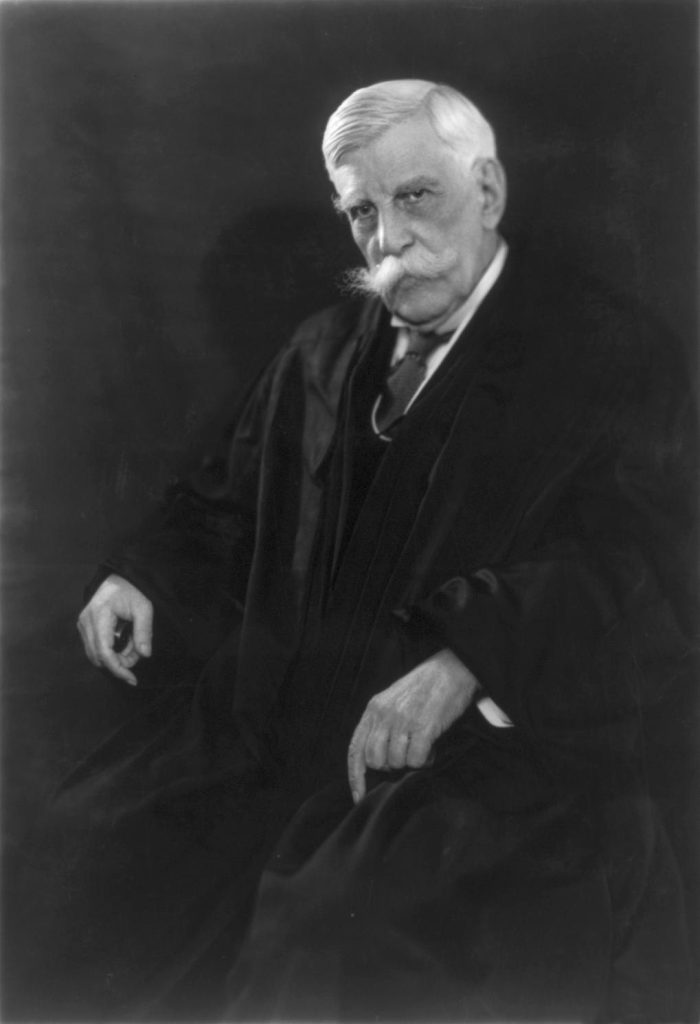
Lincoln’s Second Inaugural Address and Reconstruction. Lincoln launched his ideas for post-war America on December 8th, 1863 in the Proclamation of Amnesty and Reconstruction, what become known as the 10 Percent Plan. 10 percent of the electorate from the 1860 election would have to take an oath promising never again to raise their hands against the federal government. There would be general amnesty for the Confederates and universal suffrage, meaning black men would vote. And states had to rewrite their constitutions removing all vestiges of slavery. “With respect to amnesty, Lincoln declared that all opposition to the Union–with the exception of those in rank above Colonel in the Army or Lieutenant in the Navy, as well as traitors to the Union–would be pardoned, their property except for slaves given back, and their rights as citizens restored if they claimed allegiance to the Union.”[2] Radical Republicans in Congress were not too happy with Lincoln’s seemingly weak treatment of the COnfederacy. Many wanted a more harsh response to those in power and to extend civil rights to the ex-slaves beyond the right for men to vote. “In short, the terms of the plan were easy for most Southerners to accept. Though the emancipation of slaves was an impossible pill for some Confederates to swallow, Lincoln’s plan was charitable, considering the costliness of the war. With the Proclamation of Amnesty and Reconstruction, Lincoln was seizing the initiative for reconstruction from Congress. Some Radical Republicans thought the plan was far too easy on the South, but others accepted it because of the president’s prestige and leadership.”[3]
Lincoln reiterated his hope for a quick Reconstruction based on general amnesty in his second inaugural address: “With malice toward none; with charity for all; with firmness in the right, as God gives us to see the right, let us strive on to finish the work we are in; to bind up the nation’s wounds; to care for him who shall have borne the battle, and for his widow, and his orphan.”[4]. The Address was short but complex:
Slavery, Lincoln stated, was the reason for the war:
One eighth of the whole population were colored slaves. Not distributed generally over the Union, but localized in the Southern part of it. These slaves constituted a peculiar and powerful interest. All knew that this interest was, somehow, the cause of the war.
Lincoln, as always, was forthright yet chose his words carefully. Referring to the slaves as “one-eighth of the whole population” suggested that they were part of the nation, not an exotic, unassimilable element, as he had once viewed them. “Peculiar,” of course, was how Southerners themselves had so often described slavery. “Powerful” evoked Republicans’ prewar rhetoric about the Slave Power. To say that slavery was the cause placed responsibility for the bloodshed on the South. Yet Lincoln added simply, “and the war came,” seemingly avoiding the assignment of blame. The war, Lincoln continued, had had unanticipated consequences:
Neither party expected for the war, the magnitude, or the duration, which it has already attained. Neither anticipated that the cause of the conflict might cease with, or even before, the conflict itself should cease. Each looked for an easier triumph, and a result less fundamental and astounding.
The “astounding” outcome, of course, was the destruction of slavery. Countless Northern ministers had pointed to this as evidence of divine sanction for the Union war effort. Lincoln took a different approach. Rejecting self-congratulation, he offered a remarkably philosophical reflection on of the war’s larger meaning:
If we shall suppose that American Slavery is one of those offences which, in the providence of God, must needs come, but which, having continued through His appointed time, He now wills to remove, and that He gives to both North and South, this terrible war, as the woe due to those by whom the offence came, shall we discern therein any departure from those divine attributes which the believers in a Living God always ascribe to Him? Fondly do we hope—fervently do we pray—that this mighty scourge of war may speedily pass away. Yet, if God wills that it continue, until all the wealth piled by the bond-man’s two hundred and fifty years of unrequited toil shall be sunk, and until every drop of blood drawn with the lash, shall be paid by another drawn with the sword, as was said three thousand years ago, so still it must be said “the judgments of the Lord, are true and righteous altogether.”[5]
Appomattox Courthouse, April 9th, 1865. After concluding that he could no longer maintain a viable fighting force, Lee sought to surrender his army to Grant. The two leaders, and their respective armies, met at a Virginia courthouse to discuss terms of surrender. A hero of Gettysburg, Joshua Chamberlain was at Appomattox. He noted that after Lee’s surrender, Union and Confederate troops fell upon each other and prayed “to God to forgive us all.” He also ordered the Union troops to render the military salute to the Confederate troops as a sign of their homecoming, their return to being part of the United States of America.
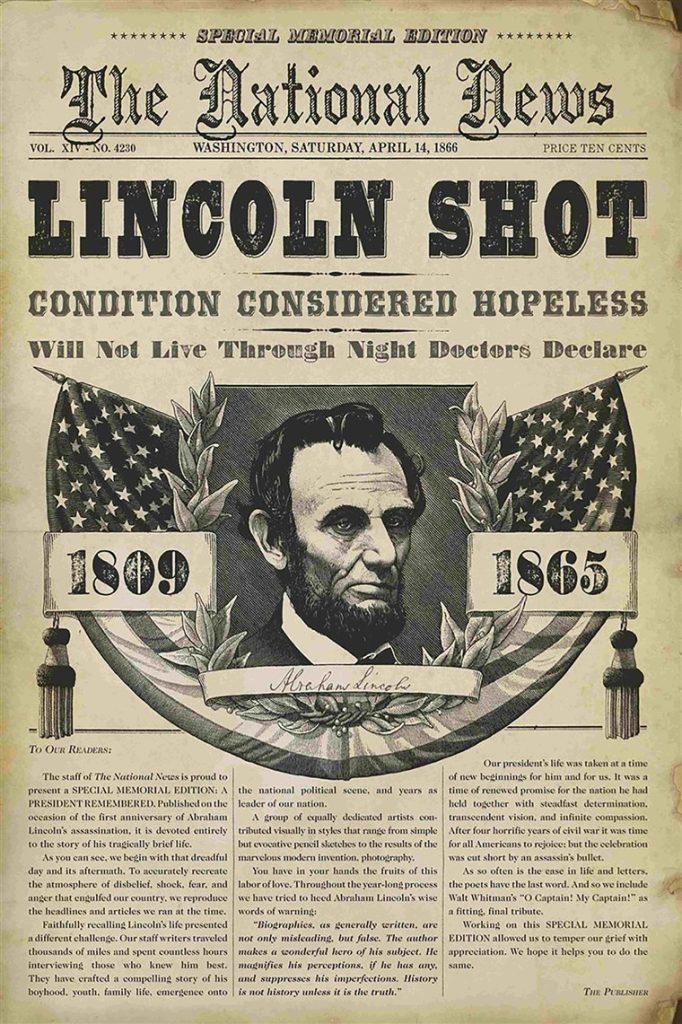
When Lincoln got news of Lee’s surrender, Lincoln ordered the military band to play his favorite a song. A song that he prohibited the band from playing during the war: Dixie. “Oh, I wish I was in the land of cotton, old times there are not forgotten. Look away, look away, look away Dixie Land!” Three days later the Lincolns rode a carriage to Ford’s Theatre to see a popular English play called Our American Cousin. On the way to the theater, the couple talked about taking a vacation. Mary Todd Lincoln wanted to take what was called the Grand Tour. Usually starting in San Francisco, the Grand Tour visited all the major capitals from Japan to the Ottoman Empire. The trip ended with a biblical tour of Palestine. Her husband agreed to take the trip. Shortly thereafter, a disaffected Confederate troop shot President Lincoln in the head. Lincoln died early the next morning, along with Lincoln’s plans for Reconstruction.
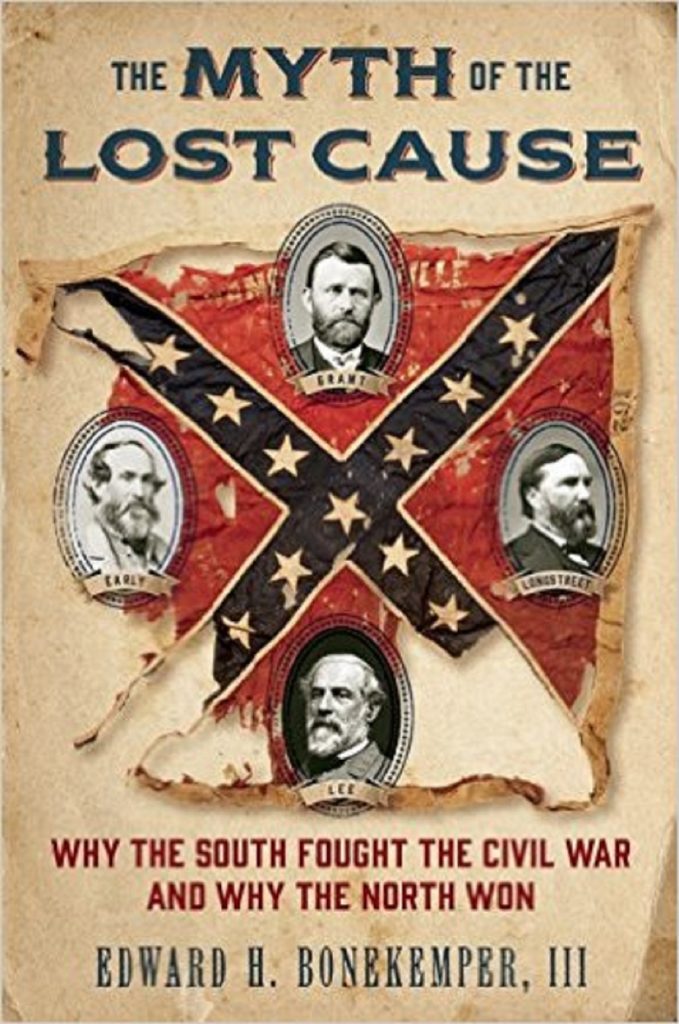
Why the North Won
The North won key battles. Gettysburg stopped the Confederacy from ever again invading the north. The destruction of Atlanta by Sherman and the Shenandoah Valley by Phil Sheridan devastated southern morale. About 180,000 black men fought in the Union army. Grant seized control of the Mississippi River effectively cutting the Confederacy in half.
King cotton diplomacy failed. In 1860, the US exported 2.5 million bales of cotton to England. By 1864, England imported 2.5 million bales of cotton from Egypt and India and the new source of cotton (long staple) was superior to the type of cotton grown in the US (short staple). Before the war England was stockpiling cotton so they did not need US cotton during the War. In fact, Union blockades of Confederate ports hurt the Confederacy’s attempts to export their number one cash crop.
Railroads. The South failed to standardize their railroad gauges therefore trains had to stop and soldiers had to dismount trains at the end of their line and wait for the train on the new train to arrive. This was exceptionally time consuming and prevented the South from getting troops to the front line, unlike the Union.
Blockade. In 1861, the Union seized 9 out of every 10 Confederate ships leaving or entering Confederate ports. That number dropped to 1 out of 3 by 1864 but by 1864 the ships were much smaller thus they carried less. Those ships also tended to carry luxury good for bartering as opposed to food and raw resources earlier in the war.
Economics. In 1861 the rate of the Confederate dollar to the US dollar was 1 to 1. By 1863 one US dollar equaled 63 Confederate cents and by 1865 one US dollar equaled 3 Confederate cents. In other words, inflation was rampant in the South. Also, economists do not agree on the extent, most agree that inflation was around 6000%. And, taxes covered less than 5% of the war effort. While in the North, farmers and ranchers not only fulfilled the needs of the Union army, but they had excess crops and meat that they sold overseas so Northern farmers and ranchers profited during the war.
The North paid for the war by levying taxes, tariffs, selling war bonds, and seizing major gold and silver reserves from New Orleans to Nevada.
Politics and Morale. After Gettysburg Longstreet resigned. Growing Confederate losses on the battlefield increased political problems such as the Richmond bread riot of 1863. Neither the mayor or the governor could stop the looting of stores for food and other goods. Some Confederate governors and other politicians openly questioned Jefferson Davis. For example, William Yancey, Senator from Alabama, criticized Davis for refusing to acknowledge that the war was about maintaining slavery and not about “states’ rights.” Davis’s vice president, Alexander Stephens, criticized Davis for supporting a draft, doing away with habeus corpus, centralizing government -three things that Lincoln did. Governor Zebulon Vance of North Carolina and Governor Joseph Brown of Georgia exempted most landowners from being drafted. Brown wanted Georgia men to fight only to protect Georgia. Vance exempted about 25,000 men while Brown exempted about 15,000. When Atlanta fell and Sherman devastated a swath of territory from Atlanta to the sea, Brown seceded from the Confederacy and sought recognition as a country from England. Clearly Davis had lost control.
States’ Rights was never a coherent national policy. The Confederate Congress was inherently weak, unable to pass needed legislation. They turned on each other calling each other vulgar names, fist fighting, stabbings, and even shooting at each other. Again, Davis had lost control.
In the North, elections took place to help the disaffected express their disagreement with elected officials and there were numerous political parties.
Finally, Confederate women wrote letters to their husbands, fathers, and brothers filled with examples of economic destitution and widespread poverty. They talked about the slaves no longer limited to their plantations (perpetrating the myth of black men raping white women). None of these issues are seen in Union women’s letters to their male family members.
Somebody (maybe John Adams) said “War is easy. Revolution is hard.” The Union won the war. Now they needed to figure out how to not only assist millions of Africans from slaves to freedmen, but also how to transform the nation socially, politically, and economically. On March 4th, 1865, Abraham Lincoln offered some thoughts on how to reconstruct the nation. “With malice toward none, with charity for all, with firmness in the right as God gives us to see the right, let us to strive on to finish the work we are in, to bind up the nation’s wounds, to care for him who shall have borne the battle and for his widow and his orphan, to do all which may achieve and cherish a just and lasting peace among ourselves and with all nations.” In other words, Reconstruction will be quick. There will be no retribution. No mass punishments.
Lincoln did float an idea known as the 10% Plan. In his plan the Confederate states had to remove all vestiges of slavery from their state constitutions and 10% of the population that voted in the 1860 election had to pledge to never raise their hands again against the United States. In a private letter to Wadsworth in January of 1864, Lincoln noted that he supported granting the right to vote to black men, a universal pardon for all Confederate men, and a general amnesty for everyone. This suggests no vindictiveness on Lincoln’s part. But then came Ford’s Theatre.
600,000 dead. 400,000 wounded. Lincoln is dead. Davis is in jail. Lee’s ancestral estate has been taken by the federal government, the ex-slaves (Freedmen) are in immediate need of help and a new group called the KKK was terrorizing both freedmen and southerners who the Klan believed to sympathize with the North. What to do? Righteous indignation from the Radical Republicans would follow.
154 years later, Republicans were asked who was the better Republican president, Abraham Lincoln or Donald Trump. Trump won 53 to 47 percent. “[O]ne C-SPAN viewer, identified as Neil, a Republican from Oregon, said that Trump “supersedes” Lincoln. ‘Lincoln only freed the slaves,’ he said during a call to the network. ‘Yes, that’s a big thing. But what Trump is doing is far greater.’ When the poll was taken Lincoln of course had a memorial on the Mall and Trump was 15 days from being impeached for high crimes and misdemeanors.[6]
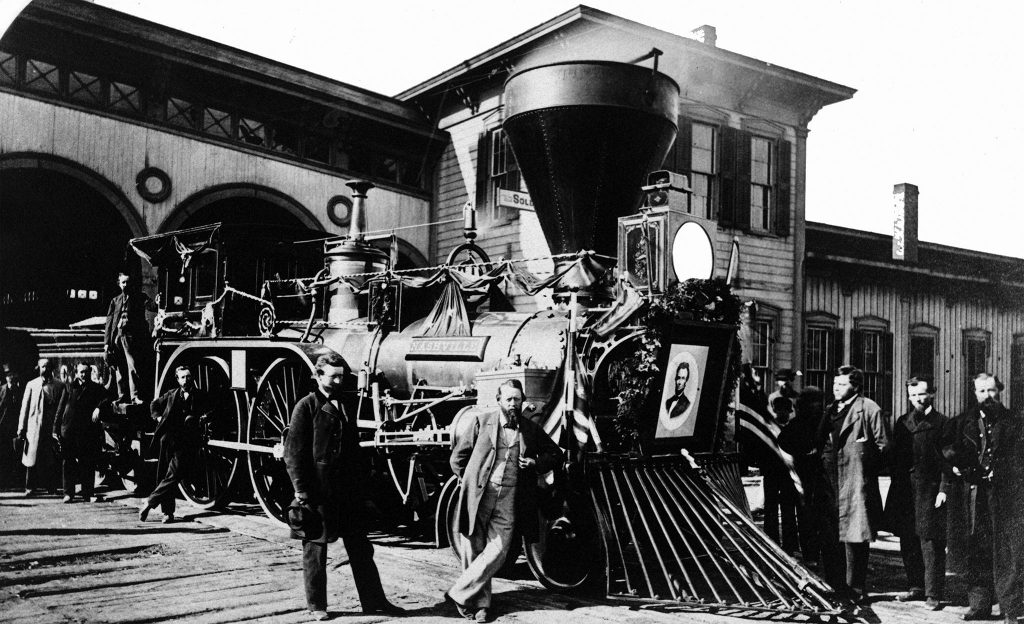
As with the other chapters, I have no doubt that this chapter contains inaccuracies. Please point them out to me so that I may make make this chapter better. I am looking for contributors so if you are interested in adding anything at all, please contact me at james.rossnazzal@hccs.edu.
- https://www.thoughtco.com/sanitary-commission-ussc-3528670 ↵
- https://historyengine.richmond.edu/episodes/view/922 ↵
- https://www.history.com/this-day-in-history/lincoln-issues-proclamation-of-amnesty-and-reconstruction ↵
- https://www.ourdocuments.gov/doc.php?flash=false&doc=38&page=transcript ↵
- https://ap.gilderlehrman.org/essays/lincoln%C3%A2%E2%82%AC%E2%84%A2s-interpretation-civil-war ↵
- https://www.washingtonpost.com/history/2019/12/03/republicans-prefer-trump-lincoln-poll-shows-todays-gop-couldnt-be-more-different/ ↵
